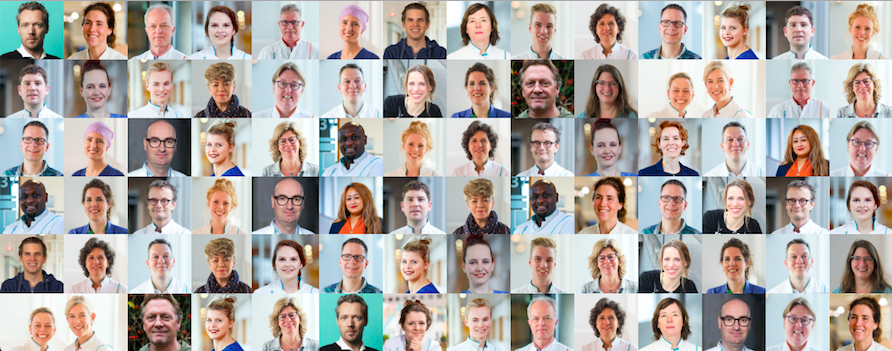PhD candidate 'Treating kidney disease by targeting a novel pathway that protects the kidney filter from injury'
PhD candidate 'Treating kidney disease by targeting a novel pathway that protects the kidney filter from injury'
You cannot apply for this job anymore (deadline was 10 Dec 2020).
Browse the current job offers or choose an item in the top navigation above.
Job description
In this project, we aim to characterize the endothelium-to-podocyte NO-mediated paracrine GFB signaling pathway, and test the promise of therapeutically targeting this pathway by repurposing already available drugs. The project entails both in vitro model systems (including our glomerulus-on-a-chip model), as well as in vivo studies using specific kidney disease animal models as well as e.g. conditional podocyte-specific knockout animals.
Kidney diseases impact millions of people worldwide and can result in progressive chronic kidney disease (CKD), eventually necessitating renal replacement therapy through dialysis or kidney transplantation.
The glomerular filtration barrier (GFB) is a crucial part of the nephron, which is the functional unit of the kidney. GFB injury is a general characteristic of several kidney diseases and, if persistent, ultimately leads to loss of nephrons and kidney failure. Novel therapies to treat GFB injury or the ensuing progressive CKD have not emerged during the last decades. Thus, there is an unmet need for novel treatment targets in GFB injury, which can be translated into clinically applicable therapies at short term.
It is increasingly recognized that paracrine signaling between glomerular endothelial cells (GEnCs) and glomerular visceral epithelial cells (podocytes) is crucial to GFB integrity. We recently showed that nitric oxide (NO) produced by GEnCs can activate a podocyte signaling pathway crucial to maintain podocyte viability. Furthermore, GFB injury is associated with NO deficiency. This pathway can be therapeutically targeted by repurposing the class of sGC stimulator/activator drugs, mimicking the effect of NO on the podocyte.
Highlights of the current project:
Kidney diseases impact millions of people worldwide and can result in progressive chronic kidney disease (CKD), eventually necessitating renal replacement therapy through dialysis or kidney transplantation.
The glomerular filtration barrier (GFB) is a crucial part of the nephron, which is the functional unit of the kidney. GFB injury is a general characteristic of several kidney diseases and, if persistent, ultimately leads to loss of nephrons and kidney failure. Novel therapies to treat GFB injury or the ensuing progressive CKD have not emerged during the last decades. Thus, there is an unmet need for novel treatment targets in GFB injury, which can be translated into clinically applicable therapies at short term.
It is increasingly recognized that paracrine signaling between glomerular endothelial cells (GEnCs) and glomerular visceral epithelial cells (podocytes) is crucial to GFB integrity. We recently showed that nitric oxide (NO) produced by GEnCs can activate a podocyte signaling pathway crucial to maintain podocyte viability. Furthermore, GFB injury is associated with NO deficiency. This pathway can be therapeutically targeted by repurposing the class of sGC stimulator/activator drugs, mimicking the effect of NO on the podocyte.
Highlights of the current project:
- Innovative research question based on a recently discovered signaling cascade.
- Use of state-of-the-art in vitro (glomerulus-on-a-chip) and in vivo model systems.
- An excellent and ambitious research environment and team, including basic scientists and clinicians.
- Translation of basic research into novel therapeutic targets in kidney disease.
- Plan, perform, analyze, and discuss experiments.
- Contribute to scientific publications and present findings at scientific meetings.
- Work together in a team in a stimulating environment.
- Complete your project with a PhD thesis.
Specifications
- max. 36 hours per week
- €2422—€3103 per month
- Nijmegen View on Google Maps
Requirements
- Master in Molecular Life Sciences, Molecular Biology, Biochemistry, or similar.
- Experience in cell culture, molecular and cell biological techniques.
- Affinity and/or experience in performing animal experiments (Article 9 is preferable).
- Competencies we value: enthusiasm, humor, high working standards, independent, team player, well-structured, communicative, reliable, ambitious.
Conditions of employment
Fixed-term contract: 4 years.
Upon commencement of employment we require a certificate of conduct (Verklaring Omtrent het Gedrag, VOG) and there will be, depending on the type of job, a screening based on the provided cv. Radboud university medical center's HR Department will apply for this certificate on your behalf.Read more about the Radboudumc employment conditions and what our International Office can do for you when moving to the Netherlands.
Employer
Radboudumc
The Radboud university medical center (Radboudumc) is a top knowledge center with a strong emphasis on fundamental and translational research. The Department of Nephrology conducts fundamental/translational and clinical research into kidney disease and renal replacement therapies. Fundamental/translational research is aimed at unraveling the molecular and immunological mechanisms underlying glomerular disease and transplant rejection, and is performed in the Nephrology Research Laboratory, part of the Radboudumc Institute for Molecular Life Science (RIMLS), a leading research institute within the domain of molecular mechanisms of disease.Research Institutes
At the moment there are more than 1,300 PhD candidates at our medical hospital. This number includes PhD candidates on our pay roll as well as external candidates (those employed somewhere else but researching on our premises).
- Radboud Institute for Health Sciences: ± 700
- Radboud Institute for Molecular Life Sciences: ± 400
- Donders Center for Medical Neurosciences: ± 200
Radboudumc
Radboudumc strives to be a leading developer of sustainable, innovative and affordable healthcare to improve the health and wellbeing of people and society in the Netherlands and beyond. This is the core of our mission: To have a significant impact on healthcare. To get a better picture of what this entails, check out our strategy.
Read more about what it means to work at Radboudumc and what our people have to say about it.
Specifications
- PhD
- Health
- max. 36 hours per week
- €2422—€3103 per month
- University graduate
- 128423-P671678-1
:fill(white)/logos/umcr-en-wide.png)
